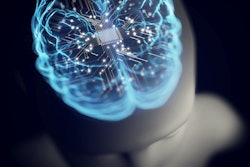
Over a billion people worldwide suffer a vitamin D deficiency, which is linked to cognitive disorders like schizophrenia and depression. A recent article from The University of Queensland says researchers have shown that vitamin D levels affect the structure of ‘scaffolding’ in the brain called perineuronal nets (PNNs), consisting of proteins and sugar molecules. “If you were going to get a net and throw it around a bean bag, the perineuronal net is the net, and the bean bag is a brain cell,” explains one researcher.
In the study, the team removed vitamin D from the diet of a group of healthy mice, while administering vitamin D to a control group. After 20 weeks, the vitamin deficient group showed a “significant decline” in their ability to remember and learn. When the brains of the vitamin D deficient mice were examined, the researchers noticed a reduction in PNNs and neuron connections in the hippocampus, the part of the brain in charge of forming memories. They believe vitamin D prevents certain enzymes from breaking down PNNs, which lead to cognitive disorders.





















